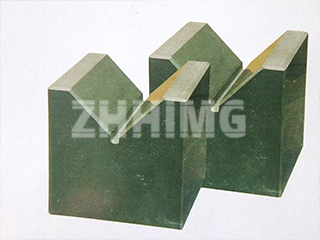In recent years, the demand for precision granite countertops has been rising across both residential and commercial markets. Granite has long been recognized as a premium material in architecture and interior design, but new advances in stone cutting, measuring, and surface finishing have elevated the way countertops are produced. For homeowners, designers, and contractors, precision now plays a central role—not only in terms of visual appeal, but also in functional performance and long-term durability.
The Evolution of Granite Countertops
Granite has been used for centuries as a building and decorative stone. Its natural strength, resistance to heat, and unique aesthetic patterns made it a preferred choice in high-end projects. However, in the past, fabrication methods were relatively basic. Countertops were cut and polished by manual processes that sometimes resulted in inconsistencies. As consumer expectations increased and technology advanced, the industry embraced CNC machinery, laser measurement, and computer-assisted design.
Today, precision granite countertops represent a new generation of stone products. Each slab can be cut with millimeter-level accuracy, edges are refined to exact specifications, and the installation process is optimized through digital templates. This evolution means that granite is no longer just a luxury choice; it is now a highly engineered product that meets modern standards for quality and reliability.
What Makes Precision Granite Countertops Different?
The defining feature of precision granite countertops is accuracy. Unlike traditional stone cutting, precision fabrication relies on advanced machinery that ensures every angle, curve, and surface is consistent with the design plan. Digital measuring tools are used on-site to capture the exact dimensions of a kitchen, bathroom, or workspace. These measurements are then transferred directly into cutting machines, reducing human error and saving valuable time during installation.
Moreover, surface finishing is achieved through specialized polishing techniques. This results in countertops that are not only smooth to the touch but also uniform in color tone and reflective quality. The precision approach eliminates small defects, improves edge stability, and guarantees a perfect fit with cabinetry, sinks, or appliances.
Applications in Residential and Commercial Projects
Granite has always been a favorite for kitchens, but precision granite countertops are expanding their presence into new areas. In modern residential homes, precision cutting allows for seamless integration of large islands, waterfall edges, and custom sink cutouts. This creates a clean, modern aesthetic while maintaining the natural character of the stone.
In commercial spaces, such as hotels, restaurants, and office buildings, precision granite countertops are increasingly valued for their durability and elegance. The ability to deliver large-scale installations with consistent quality is essential for brand image and long-term maintenance. Precision fabrication ensures that even complex layouts—such as bar counters, reception desks, or laboratory work surfaces—can be achieved without compromise.
Environmental and Economic Benefits
Another important factor driving the popularity of precision granite countertops is sustainability. Accurate cutting minimizes waste, as each slab is optimized for maximum usage. With granite being a natural resource, efficient use of material helps reduce environmental impact. Additionally, modern water-based cutting technologies recycle much of the water used in the fabrication process, further reducing ecological footprint.
From an economic perspective, precision also means fewer errors and reworks. Contractors and suppliers benefit from shorter installation times, reduced risk of misalignment, and lower costs associated with on-site adjustments. For end-users, this translates into a product that is not only visually stunning but also cost-efficient in the long run.
The Global Market for Precision Granite Countertops
The global construction and renovation industry has seen strong growth in recent years, and countertops remain a significant segment within this market. Demand is particularly strong in North America, Europe, and Asia-Pacific, where consumer preferences are shifting toward high-quality, durable, and eco-friendly materials.
Exporters and manufacturers of granite are increasingly positioning precision granite countertops as a competitive product category. By highlighting advanced fabrication capabilities, companies can differentiate themselves in a market that is otherwise crowded with standard stone options and engineered alternatives.
Furthermore, digital marketing and e-commerce platforms are expanding opportunities for international trade. Professional buyers, contractors, and even private customers can now source precision granite products online, compare specifications, and place customized orders directly with manufacturers. This trend is accelerating global adoption and creating new avenues for growth.
Meeting the Needs of Modern Consumers
Today’s buyers are highly informed and selective. They not only value the natural beauty of granite but also expect precision in every detail. Whether it is a homeowner looking for a flawless kitchen island or a developer planning a large-scale hotel project, precision granite countertops deliver on three key promises: aesthetics, performance, and reliability.
Manufacturers are responding to these expectations by investing in state-of-the-art fabrication facilities, training skilled craftsmen, and adopting rigorous quality control standards. By combining the timeless appeal of granite with modern precision, they are reshaping the market and creating products that set new benchmarks for excellence.
Looking Ahead
As technology continues to advance, the precision granite countertop industry is poised for further innovation. Automation, artificial intelligence, and smart measuring tools will make fabrication even more efficient. At the same time, new design trends—such as thinner profiles, matte finishes, and mixed-material applications—will challenge manufacturers to expand their capabilities.
What remains constant, however, is the enduring value of granite as a natural stone. With precision at the forefront, granite countertops will continue to be a trusted solution for those seeking both beauty and performance.
Conclusion
The rise of precision granite countertops marks an important development in the stone industry. By blending natural durability with cutting-edge technology, these products are redefining standards for kitchens, bathrooms, and commercial spaces worldwide. As global demand grows, precision will remain the key factor that distinguishes premium granite countertops from traditional offerings. For buyers, designers, and builders, this means access to surfaces that are not only visually impressive but also engineered for long-term success.
Post time: Sep-15-2025

